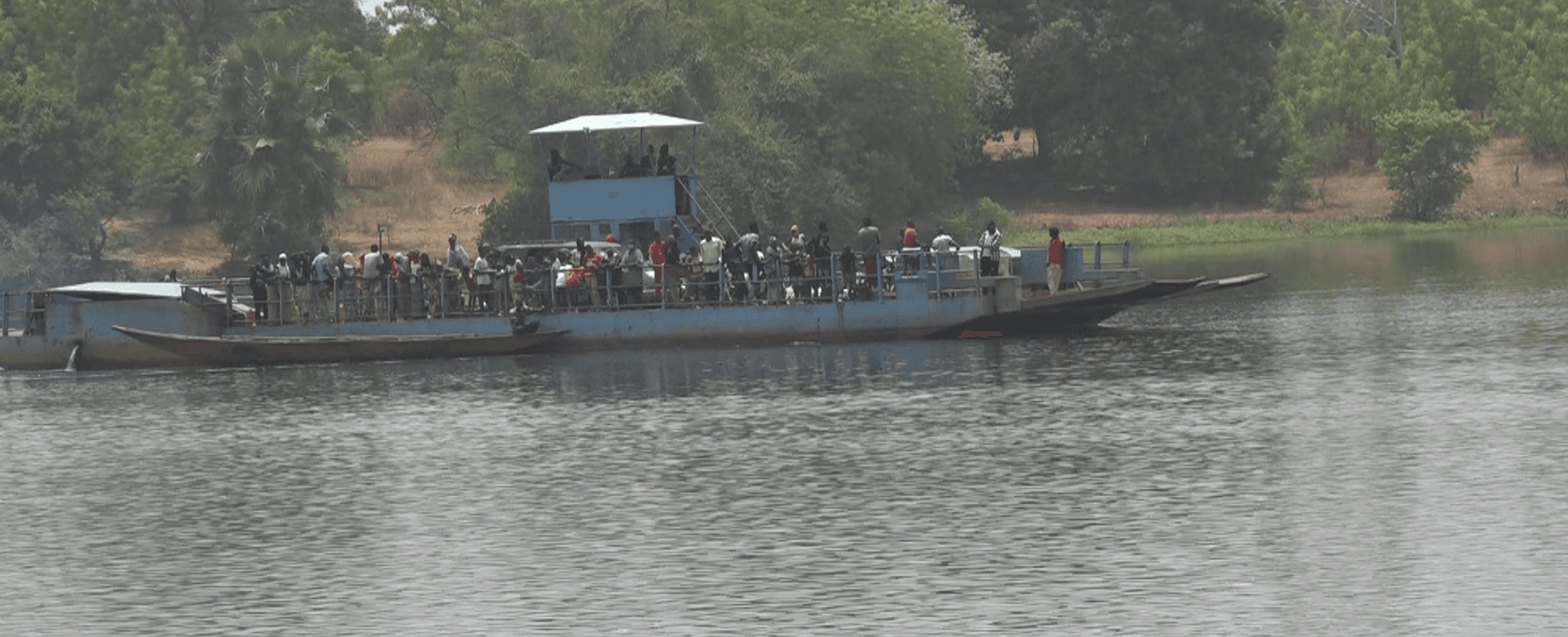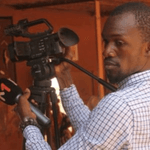

Since the train’s whistle stopped sounding, life seems to have stood still in Mahina, Cercle of Bafoulabé, region of Kayes in Mali. Here, all economic activities revolved around the train, which used to leave Bamako for Dakar, the Senegalese capital. The shutdown of railway operations and, consequently, that of the local economy forced many young people from the area to take the migration routes. While some of them succeeded in crossing the desert and the ocean to reach Europe, others failed, and some disappeared forever.
Both Fousseny Coulibaly and Ibrahim Konaté, who live in Mahina municipality, Cercle of Bafoulabé, attempted to migrate with varying outcomes. (Editor’s note: A cercle is the second-level administrative unit in Mali after a region)
Ibrahim Konaté, the younger of the two, suffered the most in his attempt to get to Europe. Leaving behind his wife and child in the hope of making a fortune in Europe and changing his family’s daily miserable life, Ibrahim ventured out on the uncertain migration routes. He bitterly recalled the ordeal he and his companions in misery experienced.
“We stumbled onto a terrorist base…”
“We stumbled onto a terrorist base. We had to pay FCFA75,000 (€115) each to be released. We spent six days in their hands. We were sent money to pay and continue our journey. I spent one and half years in Algeria, where I worked in construction. One morning, I was arrested with 2,345 other people. We were of eight (8) different nationalities. We were 346 Malians and I was the spokesperson. We were dropped off at the border and we had to walk eighty (80) kilometres to get to Niger. Four (4) female members of the group died. Each four-member group had to share a can of water and a loaf of bread was given to every two people,” Ibrahim Konaté confides.
“We paid more than FCFA 500,000 to go to Spain.”
Unlike Ibrahim, Fousseny Coulibaly successfully crossed the Mediterranean before he was deported one month later without being able to fulfil his dream of making a fortune in Europe.
“I left Mahina in 2009 to go to Mauritania. Fifteen (15) days later, we paid more than FCFA 500,000 (€770) to get to Spain. We didn’t face too many problems. One Wednesday, we left around 5 a.m. to get to our destination on Sunday at 7pm That is a 3-day sea journey. There were 63 people on board the dugout canoe. The Red Cross welcomed us and accommodated us in the camp. We spent 28 to 29 days in Spain. They took our ID details and one day, after they counted, they selected some people out of the more than 500 immigrants. To our great surprise we got on a flight. When we got off, I realised that I had been deported. We were at Bamako Sénou airport,” Fousseny Coulibaly recalled sadly.
Established as a Cercle in 1887, Bafoulabé has been the first Cercle in Mali. The Khassonke and Sarakole communities are the largest ones in the area. Both ethnic groups have strong communities in Europe, particularly in France. The relative success of the members of the diaspora that have been making significant investments, has encouraged idle youths to leave for overseas, try “their luck,” as Fousseny Coulibaly explains.
“I studied electricity and I got my NVQ (vocational qualification – CAP in French). I don’t have a job, but I used to make wiring in the town, which didn’t bring in much money. That is why I decided to leave,” Fousseny recalls.
Having made extensive studies and taken several competitive exams, and unsuccessfully applied for hundreds of jobs, Ibrahim Konaté yielded to the temptation of emigration to escape the misery and, above all, to be able, once in Europe, to help his family as many young people of his generation are doing now.
“We left because of the situation here. We finished our studies but we got no jobs. The few jobs that existed were given out of favouritism. I left to avoid falling into certain traps. That’s why I decided to leave. I left Mahina on 10 May 2015,” Ibrahim contends.
The difficult return
Here, leaving is a challenge. Coming back without money is synonymous with failure. While many people refuse to face the community’s scrutinising look after their unsuccessful immigration attempt, Fousseny Coulibaly and Ibrahim Konaté came back home although not without fears and difficulties.
“Returning home was very difficult. Imagine a father who left for money and came back to the country without even a bag. I admit that it is difficult. I wanted to continue and not set foot here again,” Ibrahim Konaté confides. Both he and Fousseny Coulibaly benefitted from the support and kindness of their friends in the “grin.”
Here, like everywhere else in Mali, the “grin” is the place where friends discuss and deal with the problems, and try to find solutions together.
Harouna Diop is the head of the “grin” to which the two unsuccessful emigration candidates belong.
“We provided them with a lot of support when they returned. We let them know that being with their families and relatives, and being satisfied with what they earn was better than risking their lives in the desert,” says Harouna Diop. “Parents must also understand that these are tough times for everyone. Therefore, they should not put too much pressure on their children. The unemployment crisis does not only exist in Mahina but everywhere in Mali,” he adds.
Thanks to the “grin,” group therapy, and advice from the relatives, these young returnees have regained their place and are now looking to the future with hope.
“As far as I’m concerned, it’s over. I will never risk my life on these routes again. I’m going to stay here, manage by myself, and get through. Since I returned, I have been raising livestock. I am not rich but I manage to satisfy my needs. That’s the most important thing,” Fousseny Coulibaly says delightedly.
After a difficult return and reintegration, Fousseny Coulibaly and Ibrahim Konaté, who have become a livestock farmer and gold panner respectively, have been holding awareness-raising sessions for local youths. The aim is to encourage them to set up a business, avoid illegal migration, and finally to convince those who want to leave at all costs to opt for legal channels.





